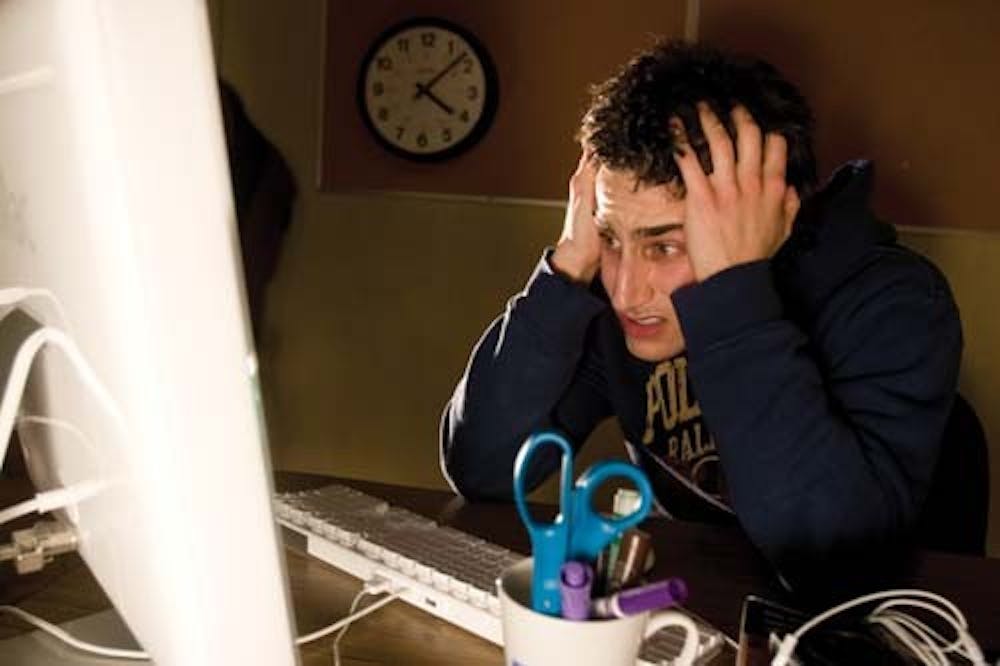The mantra of the procrastinator -- "I do my best work under pressure" -- is also a perpetual myth on campus. This motto keeps Starbucks in business, the Herman B Wells Library Information Commons open 24 hours a day and some students in a constant state of sleep deprivation. \nSo why do so many people subscribe to the myth? Because they've never done their work except in a state of panic, says Nancy Stockton, director of Counseling and Psychological Services at the IU Health Center. \n"People need to realize the rewards of not procrastinating," she said. "It can feel wonderful to get things done two days ahead of time." \nPutting things off until the last minute isn't just a phenomenon of the college years -- procrastinating behaviors follow people throughout their lives. According to a University of Calgary study, procrastination in American society is getting worse, making people poorer, fatter and unhappier.\nThe study, published by the American Psychological Association's Psychological Bulletin, found that 26 percent of Americans think of themselves as chronic procrastinators, up from 5 percent in 1978.\nThe study found that increases in technological temptations such as e-mail, the Internet and computer games are playing a large part in the rise of procrastinators. For anyone who sits down to do a paper and an hour later finds him- or herself having accomplished nothing but Facebook stalking, this rings true.\nRachel Gerling, who graduated from IU in December, said she put off doing school work until the last minute because the pressure helped motivate her to get things done. Now without the strain of immediate deadlines and more free time, she is having a hard time focusing her energies outside of academia. \n"Even having too much time now -- an overload of too much time -- still doesn't mean I get anything done any quicker," she said. "Looking online for jobs is a big problem. There are so many distractions there."\nMark Brostoff, associate director of the Kelley School of Business's undergraduate career services, said he believes students procrastinate in more profound ways than putting off their job searches. He said he thinks many students might get a job, but they put off starting what they see as their career. Brostoff said employers of these graduates notice minimum time and effort put into the job, an increase in job switching and a lack of loyalty.\n"Until students think about dedicating 10 years to a company, they are procrastinating," he said.\nBrostoff said the phenomenon of many graduates going home to live with their parents is a symptom of procrastination. \nWhile in college, there are steps procrastinators can take to put a stop to their self-defeating behavior.\nStockton recommends students divide large tasks into smaller, manageable ones and assign regular times to work or study. She said she finds that successful students tend to get their work done by late afternoon and early evening, giving them the late evening to relax. \n"Try to treat studying as you would a job," she said. "Study in a group of serious students -- it's easier to make commitments with a group than with ourselves." \nBut like any other bad habit, overcoming procrastination takes willpower.\n"People shouldn't feel guilty about (procrastination)," Stockton said. "Don't waste time feeling guilty -- do something about it"
Procrastination: Internet, games, e-mail leading to large spike in work-delaying

Get stories like this in your inbox
Subscribe





